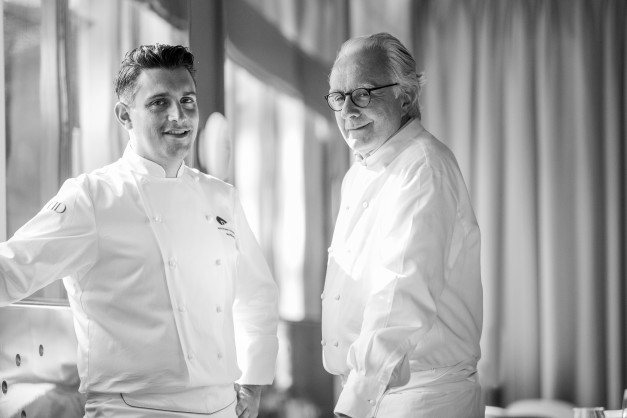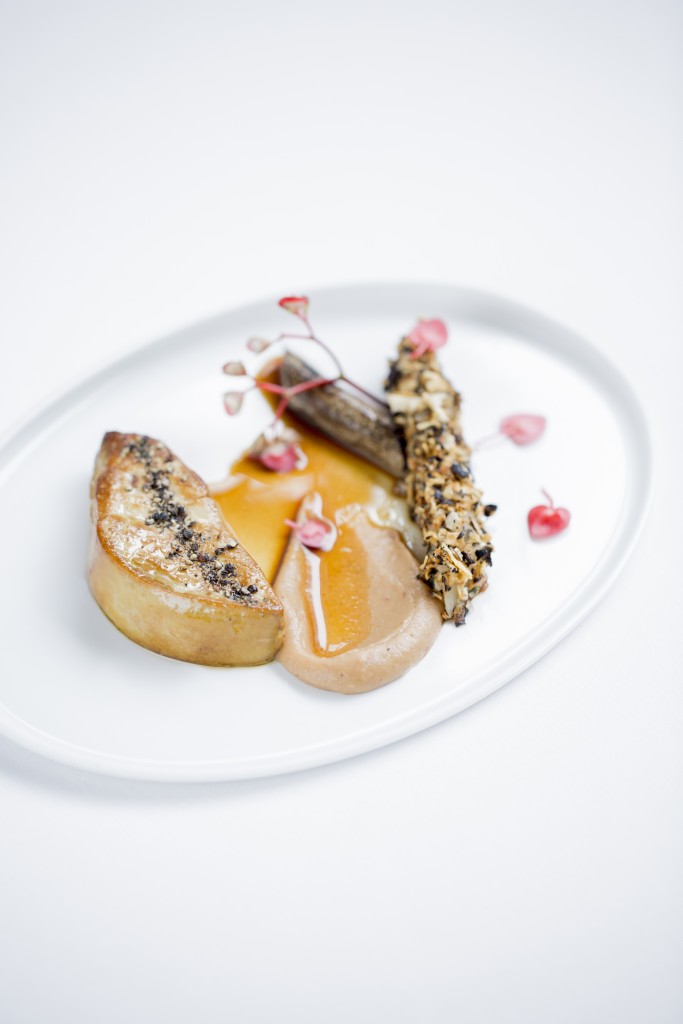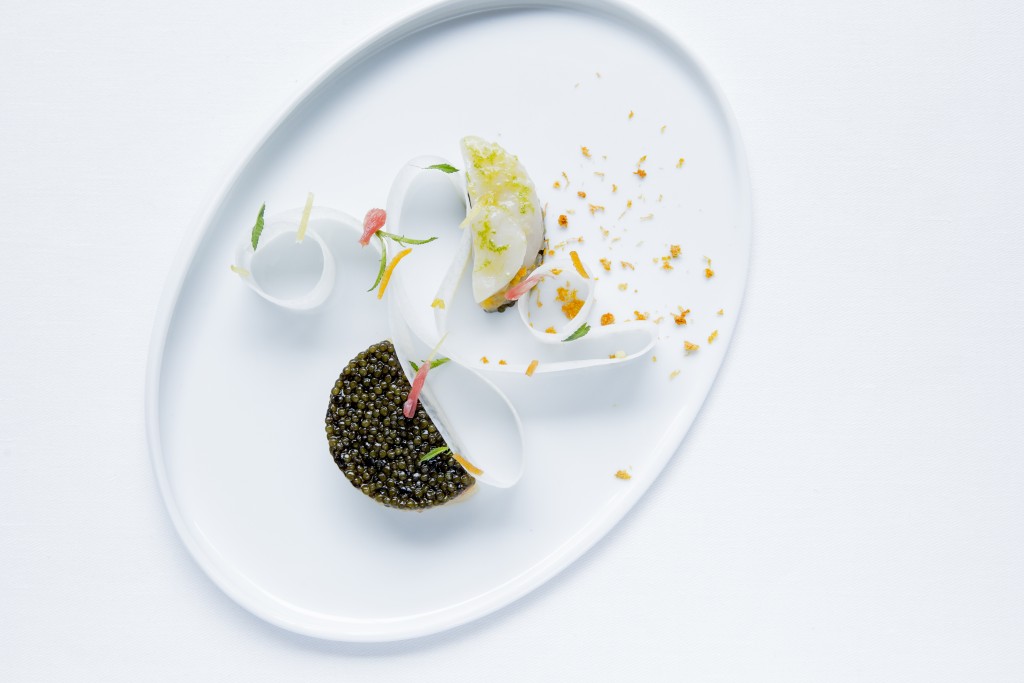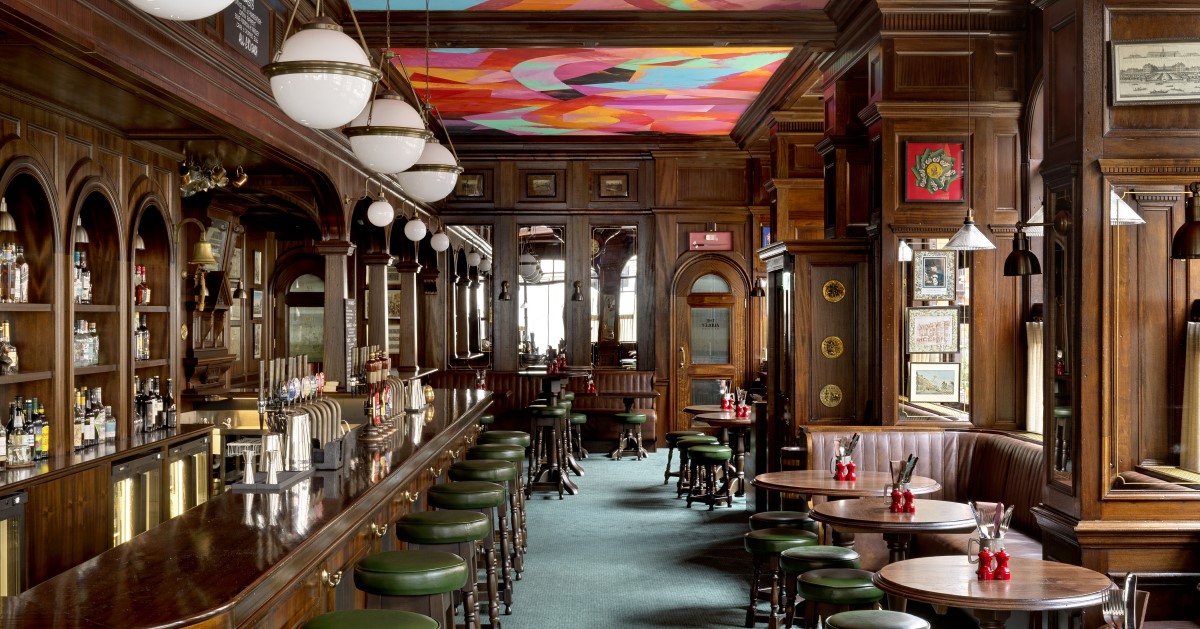
The influential French-born, Monégasque chef tells me that he has a new vision – not only for his restaurants, but for the wider culture of food and drink. Ducasse says that he is embracing sustainability in a grand way.
“We need to rethink the way we feed ourselves. The planet is able to feed everyone, but we have to rebalance how we consume. People who are overfed have to think about the way they consume, to allow people who are underfed to access resources. This is very important to me.”
In 2014, Ducasse took a quantum leap forward at his three-Michelin starred gastronomic temple at the Plaza Athenée, Paris, introducing a new style of cooking he calls ‘cuisine de naturalité’ – which eschews meat and dairy and puts the emphasis on locally-sourced ingredients.
This was a radical move for such a respected restaurant, particularly in Paris – a city that’s food culture is centred around animal produce. “The idea is to focus on vegetables, grains and fish. The codes for haute cuisine can be seen as produce like foie gras; but we wanted to show that we could do haute cuisine without focusing on meat.
“What we produce at the Plaza Athenée is still beautiful – the level of excellence is very high,” says the chef matter-of-factly, “But it’s key to have less protein, less fat, and also less sugar. We are creating a cuisine that is healthier for us as guests, but is also more sustainable and better for the planet,” he says. “That is my new vision.”
Jean-Philippe Blondet, head chef at Alain Ducasse at The Dorchester, explains further. “In restaurants, you see that all the produce is the same size – but we don’t care. If a carrot is a strange shape, it doesn’t matter. If the beetroot is big, we don’t mind. It’s natural.
“What we are looking for is the best produce – the most fresh and organic we can find in the UK. We use everything we buy and put everything we get on the plate, just in a different way.”

“Today, we believe that big portions are synonymous with quality, which is not the case,” says Ducasse. “Big portions normally mean waste, which is a shame.” As well as using every bit of produce that comes into the restaurant to minimise waste, Ducasse’s restaurants also source ingredients as locally as possible, from trusted suppliers that share the same ethos. “In Paris, we work locally and with the seasons; the vegetables are grown in Versailles, a few kilometres away, and they are delivered with an electric car. It’s an economy of proximity.
“The key is to work with produce that is harvested when it’s at the perfect maturity, at their best.” He says that finding the right supplier has long been integral to his work; but the changing food culture has allowed him to embrace the idea more fully. “Sourcing has always been at the heart of what I do. Behind each ingredient is a man or woman who is the link between the produce and us. They allow us to have knowledge of these ingredients as well.
“There is a farmer in the countryside outside of Beijing who produces organic vegetables,” says Ducasse, noting that his sourcing philosophy extends throughout his global stable of restaurants. “It’s remarkable the work he is doing there – everything I tasted was to perfection. He decided to grow everything organically, with the idea of sustainability. He has 47 tunnels, but he doesn’t heat them which leads to less pollution.”
The tricky part is to have a lasting influence on the culture, in order to create a better environment for ours and future generations. Ducasse sees the world’s finest restaurants, such as Alain Ducasse at the Plaza Athenée (number 13 on the World’s 50 Best Restaurants) and his spot at The Dorchester as arbiters of change. “It is key for me and restaurants like ours to highlight these issues and create awareness. Haute gastronomy is a way to share this knowledge. That’s how I can access the media and really spread the message.
“Much like haute couture with fashion, haute cuisine is necessary for the evolution of the industry. Haute couture will influence prêt-à-porter, like haute cuisine will influence the rest of the food industry,” he says, stating that daring moves from restaurants towards sustainability will have an impact on the wider food culture. “It starts in Paris at the Plaza Athenée, but the influence goes on to other restaurants – to London as well, where we have started to take on elements of naturalité.”

Ducasse’s business empire includes 26 restaurants that currently hold 18 Michelin stars; a Parisian cookery school; training and consultancy and Alain Ducasse Edition, his own publishing company. Through these, Ducasse is dedicated to passing down his expertise. “The main motivation for me is this transmission of knowledge. That’s how I see the evolution. It’s key for me to share my knowledge – of course with the guests – but also throughout the industry; the chefs, this generation and a future generation. It goes through the restaurants, the cooking schools that we have for amateurs as well as professionals, and the publishing house,” he says. Ducasse has recently published a book on these issues of sustainability, Manger Est Un Acte Citoyen – literally, ‘eating is a citizen act’ – so far only available in French.
Ducasse tells me that thanks to good timing on his part, his company’s work puts him at the dawn of a new era in the way we appreciate food. “Innovation is key; but the important thing is not to be too far ahead. You have to anticipate, but you have to find the right time to create these trends. Ultimately, this issue is incredibly important now – and it will be in the coming years.”




